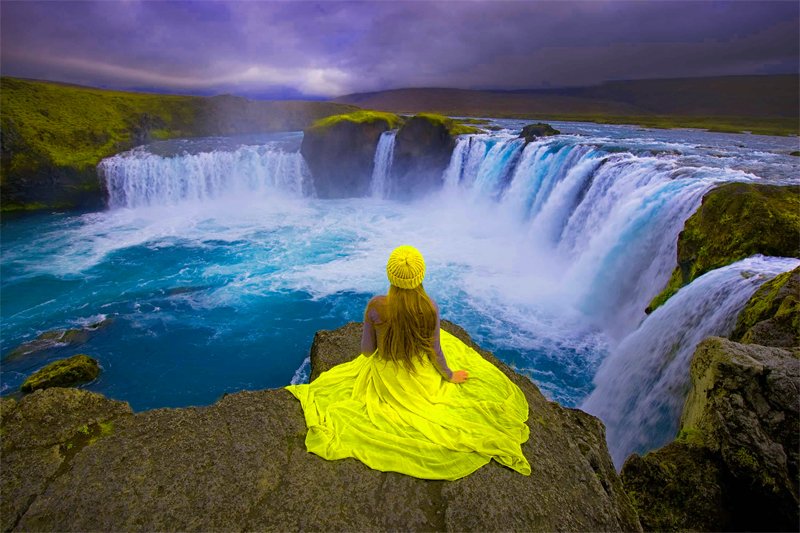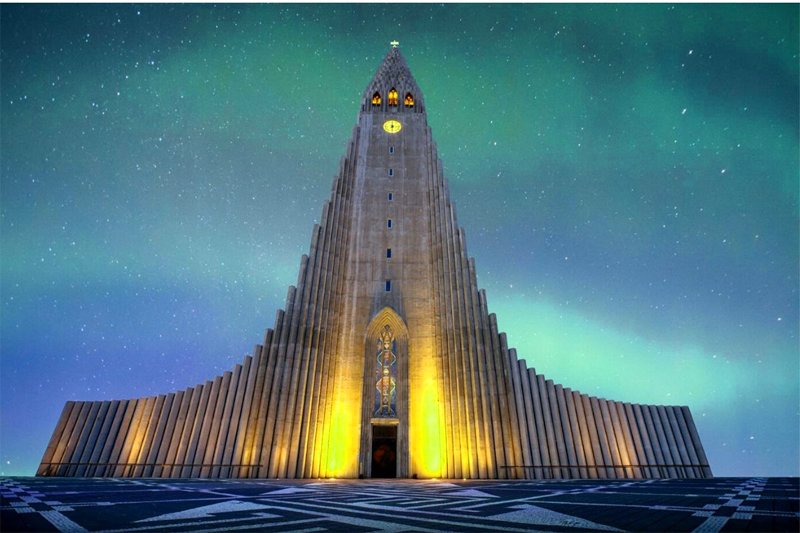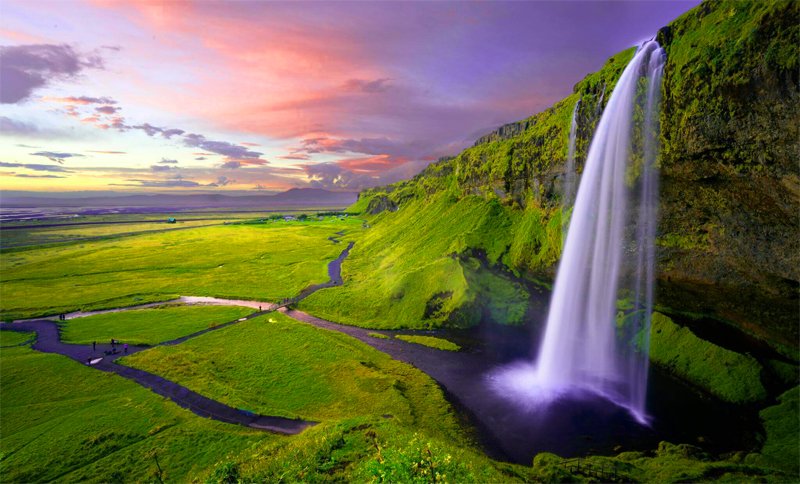
The Ultimate Guide: Discovering the Best Time to Travel to Iceland – 2024
Introduction to traveling to Iceland
Iceland is a great country to travel; it can provide a person with the most stunning experience of his/her life. In fact, it is the Land of Fire and Ice. Whether you like the country’s natural landscape or a big amount of different cultural events, this country will touch the heart of each traveler. It is obvious that each traveler plans to ask the idea, “When will it be a good to travel to Iceland?” This is the reason why in this travel guide, I will attract you by all most relevant details and information about the way to travel to Iceland.

Factors to consider when deciding the best time to travel to Iceland
I’d be happy to list the considerations you need to make about traveling to Iceland. Having thought about the weather and climate in Iceland first, I would say that it is mostly cool and not very stable. In winter, the temperature is on average -3°C to 2°C , and in summer it is 10°C to 15°C . You should also bear in mind how often the weather changes – it is rather frequent in Iceland than not – you might experience all four seasons in one day .
Another topic you think of might be the peak and off-season. People prefer going somewhere in the peak – when it comes to going to Iceland, peak season is June to August. The climate is fantastic, and the time of day is also great – it is nearly 24 hour-long daytime. Most tourists visit Iceland in the peak time, and prices are highest then. From September to May, you experience the off-season when it is much more silent and cheaper, but, remember the off-season is the off-season for a reason, and not all businesses and facilities will be at your service.
Weather and climate in Iceland – Best Time to Travel to Iceland
The weather in Iceland is cold because of the Gulf Streaming. The country is close to the Artic Circle which makes their weather cold as well. Both of these things mean that the weather here is ideal for those who like to be outside and who get dirty. In the summer, it will be between 10-15°C , 50°F and 59°F . As in other places of the country on that side of the world, the days are very long. It would be good for people who like adrenaline overwhelming things or just walking around and doing things like crossing run down bridges over a river .
In the winter, Iceland will be cold averaging around -3 to 2°C, 27°F to 36° . The upper side of ice land will be warmer than the northern face of the world at the same latitude.it has the same summer ,head 6°C. In winter, the outskirtswill show why season is destined for in their cold weather condition and short lighting hour the perfect Edenvaporation.
The best time to see the Northern Lights in Iceland – Best Time to Travel to Iceland
One of the main features of Icelandic country is Northern Lights or the Aurora Borealis. In this case, a fact-proving phenomenon occurs through the reaction of the solar and air particles in the spell of the sun. Then the sky becomes the room for the dancing lights. To contemplate this awesome phenomenon it is evening skies free from any other glow which are the best.
Top viewing season for Iceland’s Northern Lights is from the beginning of September to the end of March. This happens when the clocks get reset to longer and darker nights- the most suitable time to receive see the lights. A word of caution is that the Northern lights themselves are natural phenomena which are at times unpredictable. One must be silent in an area where there is fewer light pollution and follow the weather and aurora forecast to obtain the best seeing conditions.
The best time for outdoor activities in Iceland – Best Time to Travel to Iceland
Iceland is an ideal place for people who love nature, it offers a number of activities from early in the season. A suitable time for doing outdoor activities would be based on the kind of activities that you intend to do outdoors. In summer times, which last from June through August, one has the opportunity to participate in outdoor activities like hiking, camping and swimming to waterfalls and thermal baths. Enjoying the comfortable weather and the elongated sunshine are some of the best reasons to take an outdoor activity.
Whether winter is your cup of tea or not, then make sure as I said that you plan for a trip between December to February if you wanted to be taken advantage of the winter. Frozen locations give you the incredible surrounding environment and you can even see the aurora.
Festivals and events in Iceland throughout the year – Best Time to Travel to Iceland
Iceland is a nation that values its long held cultural and historical traditions and it has events and festivals to express this. You can discover a festival or an event going on in a specific month of the year no matter what season you come for visiting.
Reykjavik Winter Lights Festival (February): This festival is about celebrating the city’s winter beauty and several of its features through installations of lights, music, and numerous cultural activities.
Iceland Airwaves (November): A world-famous festival that will bring together local and international artists to play music in different places of the town.
Secret Solstice (June): A music festival at the very heart of summer solstice where, through the centuries old music you can enjoy, listen to concerts by international performers in really special places, like inside glaciers or lava caves.
These are just some of them as during the whole year in Iceland many other festivals and events take place. It is advised that you refer to the local event calendars to familiarize yourself with the activities during your visit.

Budget considerations for different seasons in Iceland
When the designing your tour to Iceland, it is important to think of the budget and the month of the year that you will travel. By discussing the time from the month of June to August, which is the best time to visit Iceland and at the same time, the prices for accommodation, activities, flights and so forth will be higher. If you are daring and on a tight budget, going during the off-season September to May would be a good option for you to spend less on much of the trip you make.
Hostels frequently provide a reduced rate in the off season. Simultaneously, a few tour operators can have deals and promotions ongoing in the off season. Some attractions and activities might be a bit limited during the low season hence advance planning is highly advisable and early bookings will be a good idea.
Tips for planning your trip to Iceland based on the time of year
Be sure to read and evaluate these main suggestions when making your journey schedule to Iceland depending on the season.
Summer (June to August): Take into account the possibility of weather changes and always have different clothes like jackets. It is essential to book accommodation and activities well in advance, fast at which they are sold out during the peak season.
Winter (December to February): Keep yourself well dressed and bring along the essential cold-weather items like thermals, hats, gloves, and thick-soled boots. Take account of the fact that daylight is scarce, thus, plan your activities in the right manner.
Spring (March to May) and Autumn (September to November): To avert awkward situation put on the skirt that is weather-proof so that you will be on the safe side of unpredictable weather. Sort out your wardrobe with a variety of light and airy layered clothing so that you could wear clothes that can keep you warm, yet comfortable.
Whatever season you choose to visit the best equipment includes a waterproof jacket, a good pair of hiking boots, and high-end camera lenses for stunning views.
Conclusion: Finding the best time to travel to Iceland for your preferences
Overall, the optimal time to travel to Iceland is subjective and primarily influenced by the kind of experience you expect and desire to have. If mild weather and long daylight hours are your thing, then June to August are recommended when it comes to summer. Contrarily, if a chance to see the magnificent Northern Lights and be situated in a more relaxed and affordable atmosphere is required, visiting between the months of September to March would give such an experience.
Rather than the time of year, Iceland brings for itself something rare and unrepeatable for every traveler. It is either through the sight of its beautiful scenery or the sound of cultural activities and festivities, but there is never a dull moment here. Make your plans, put on your bag and pack for the lifetime experience of traveling to the land of fire and ice!

